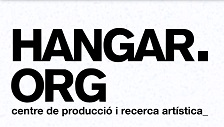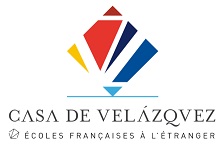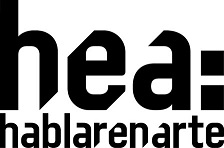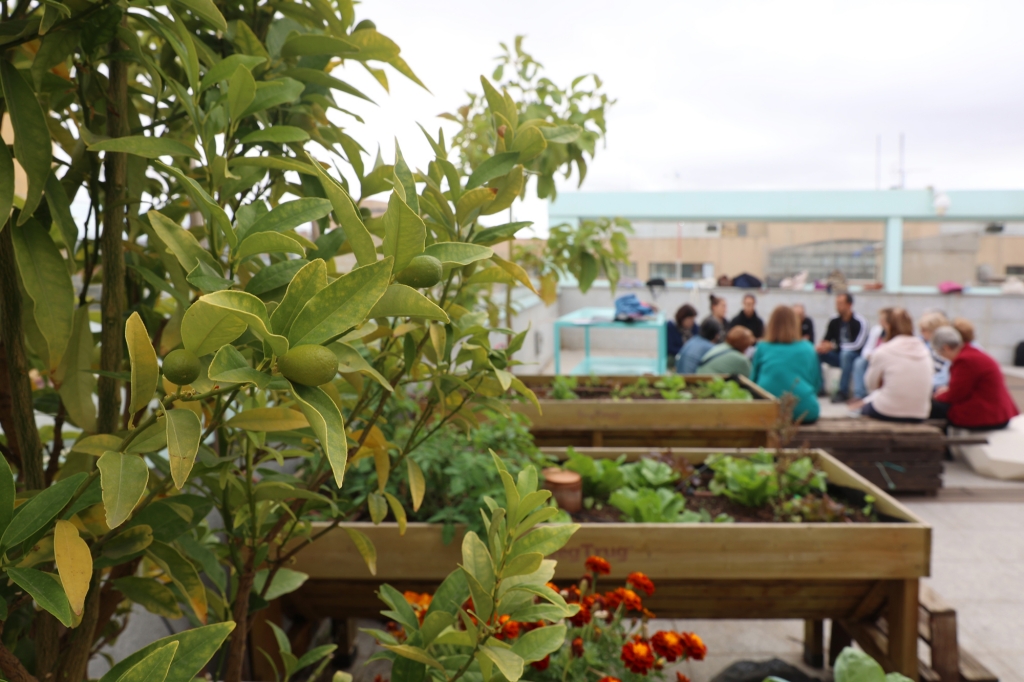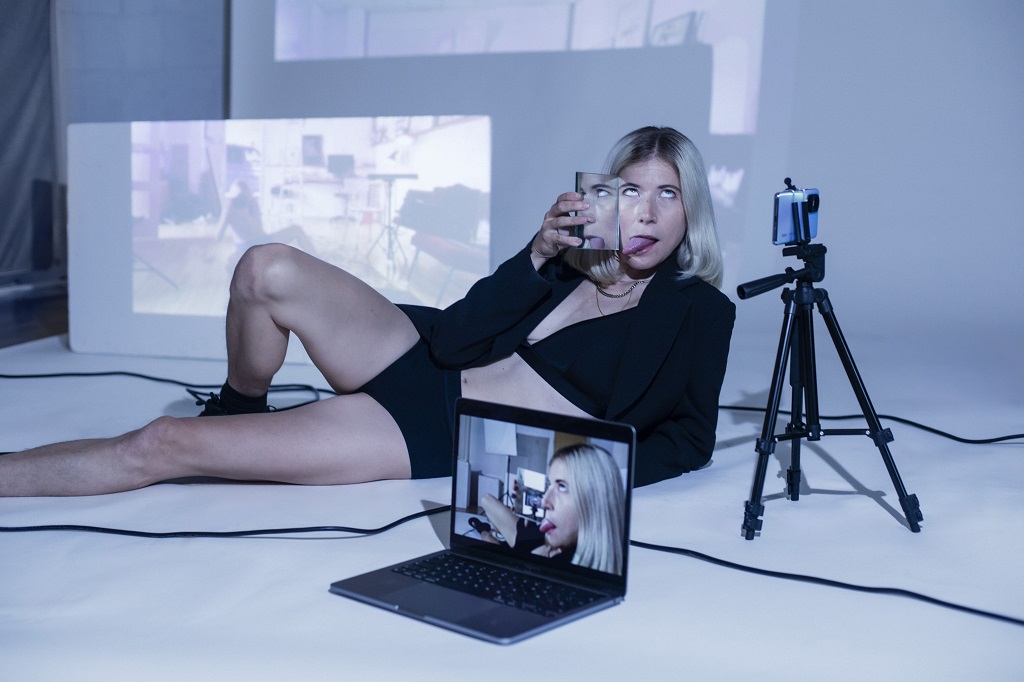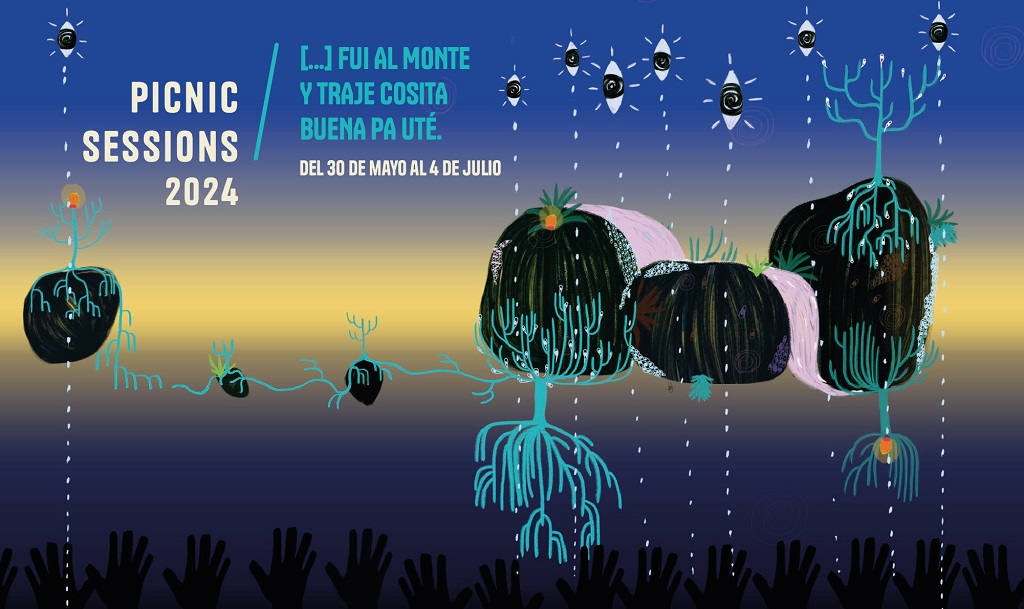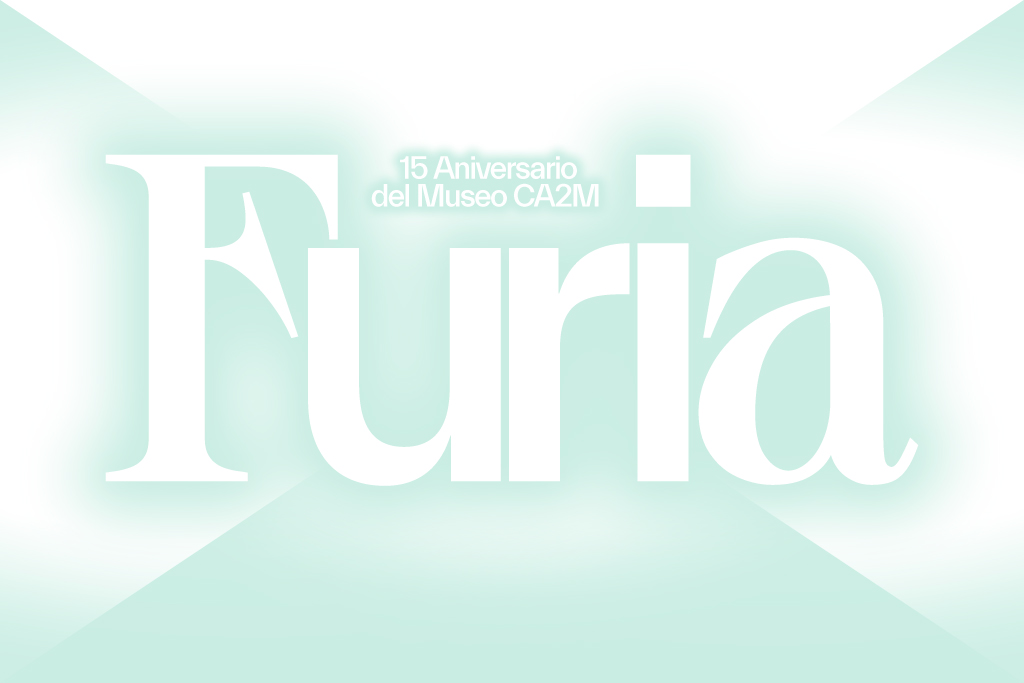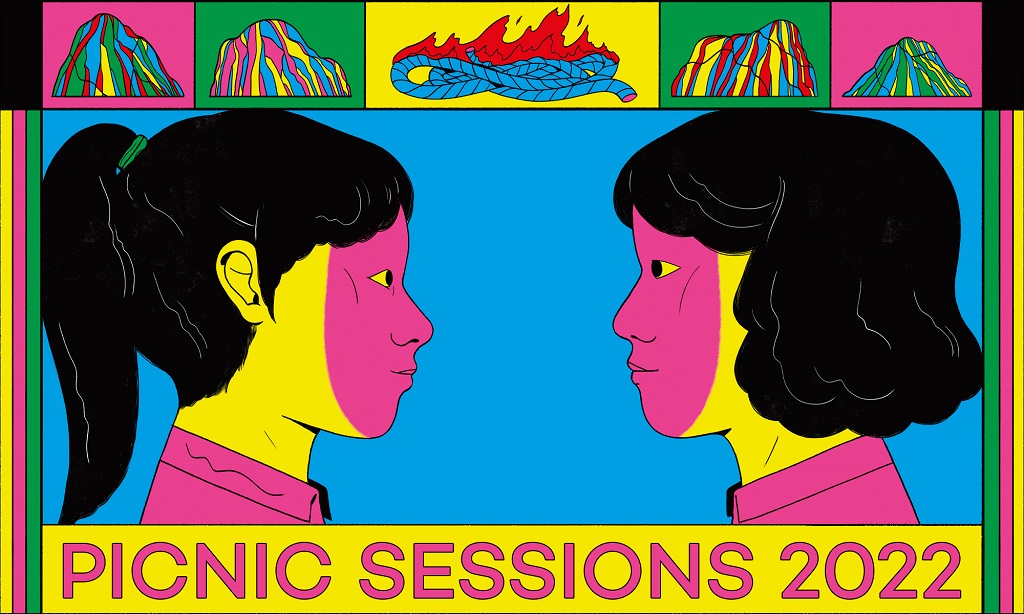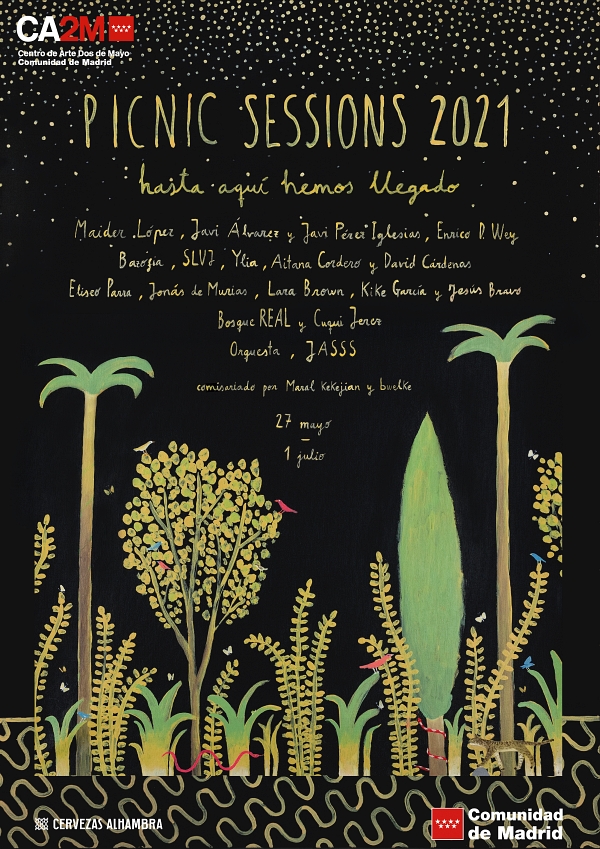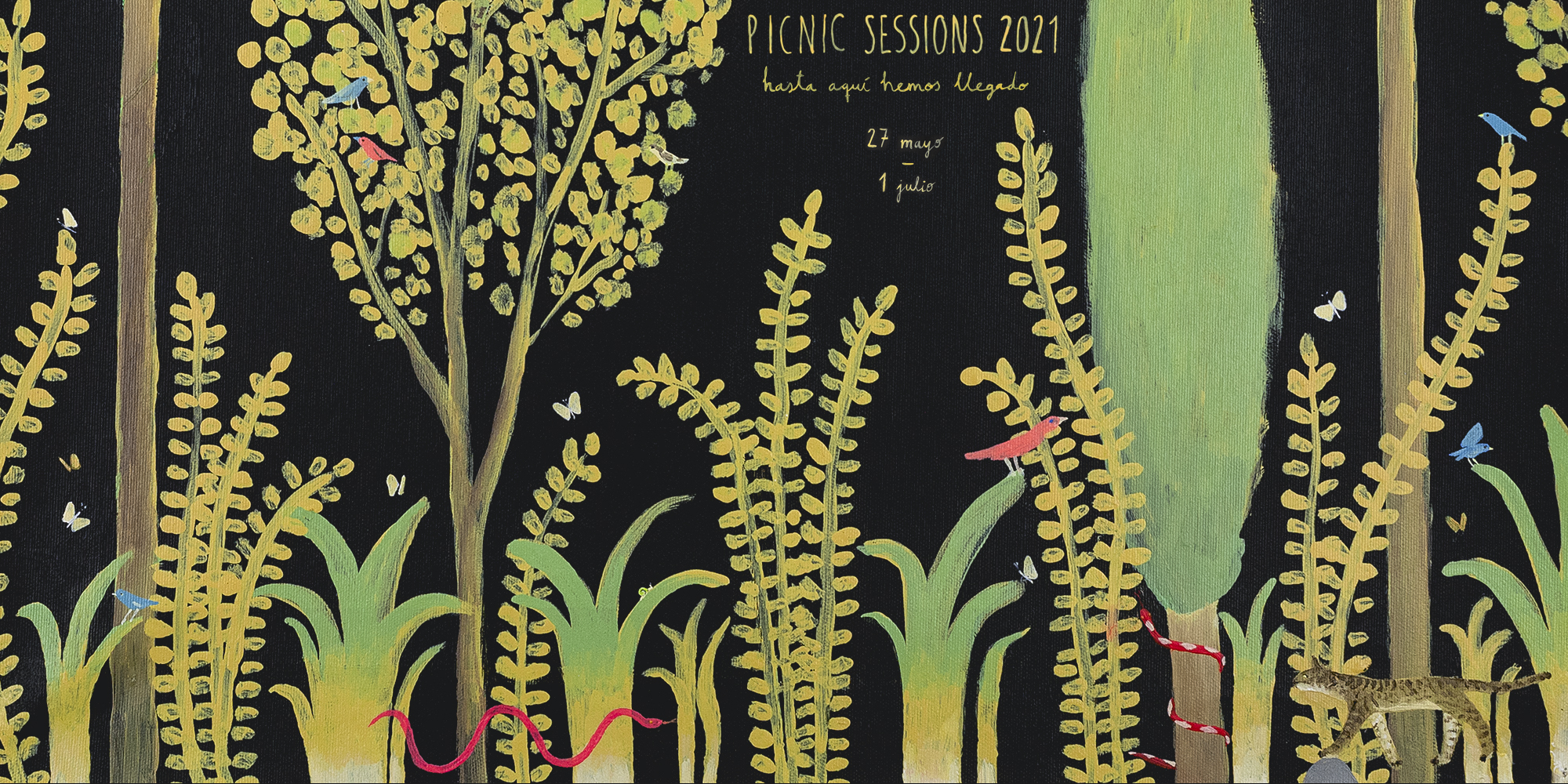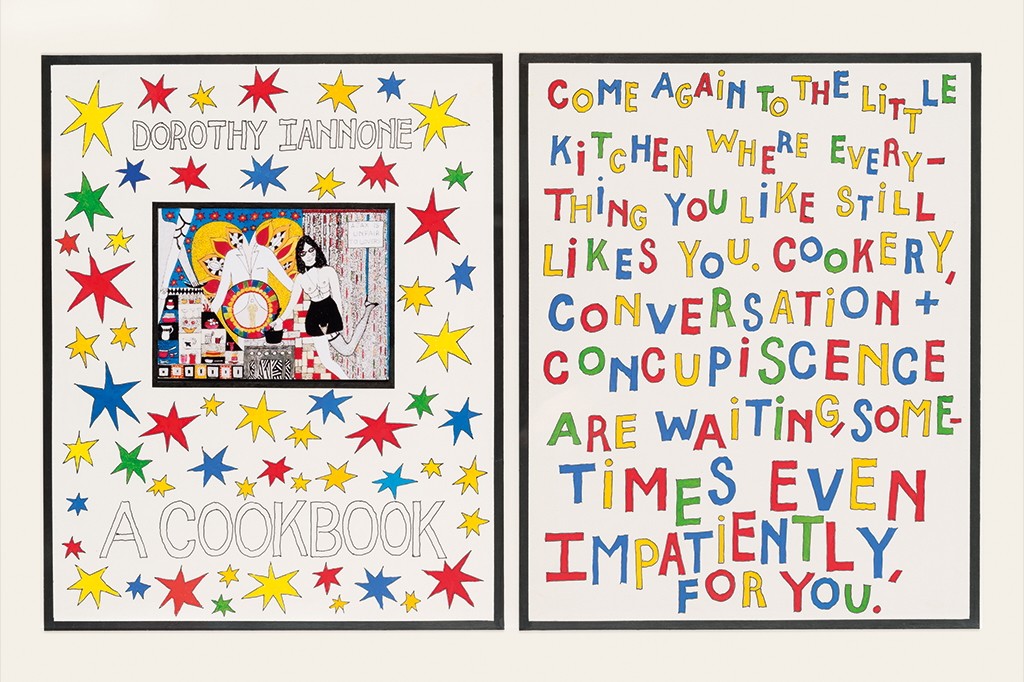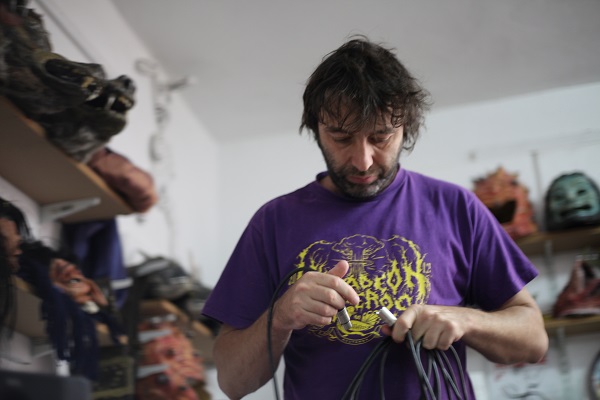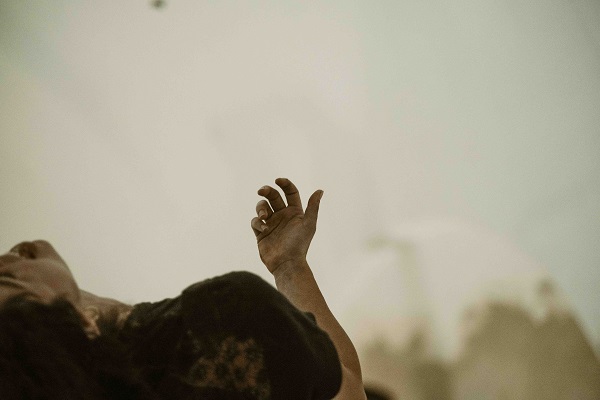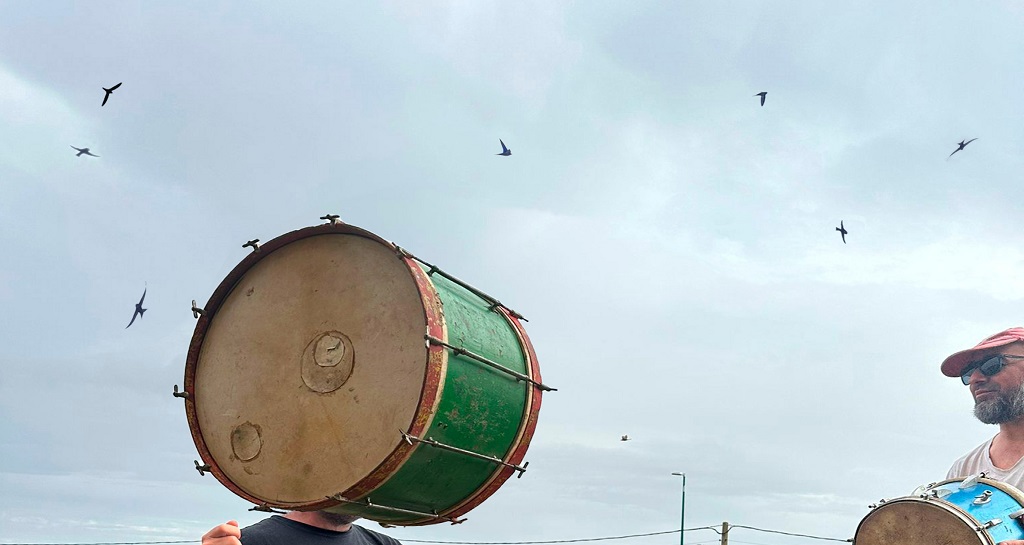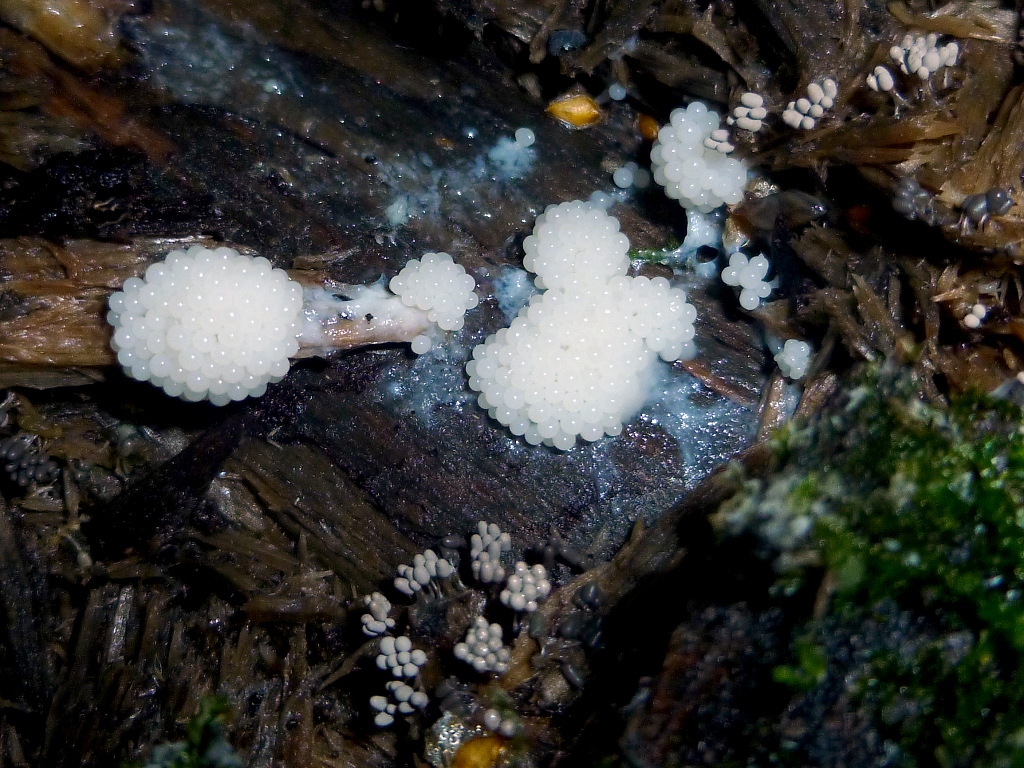On Wednesday 12 February Museo CA2M presents Swiftly Arose and Spread Around Me: Interventions for Sticky Thinking (Act 2), launching the second part of the curatorial research undertaken by Sergi Álvarez Riosalido within the framework of the seventh edition of the Encura Residency programme. La Cuarta Piel, Sandra Mar, Maya Pita-Romero, Laura Ramírez Ashbaugh and María Rojas will take part in the inauguration of this research process.
Encura is a research residency programme that aims to promote, expand and complexify curatorial research processes by intertwining the artistic contexts of Barcelona and Madrid, encouraging and enabling curatorial research that doesn’t result in conventional exhibition projects. The programme is co-led by HANGAR, Museo CA2M, Casa de Velázquez and hablarenarte.
The second act of this curatorial research project is conceived as a performative and reflective gathering inspired by the study of sticky thinking and the diverse potential of slime as a political, ecological and affective concept. The event will feature a series of interventions on key themes such as the mediation of viscosity in human and more-than-human relationships and the radical connection between bodies, fluids and environments.
Sticky thinking is developed as a conceptual and sensory framework that blurs the boundaries between bodies, objects and environments, exploring the dynamics of connection and transformation. Drawing on the intimate contact described by Walt Whitman in a poem that inspires the title of the project, sticky thinking takes saliva as a medium which, as it flows and spreads, unites the human with the more-than-human, the scale of our body with the infinitely large and the infinitely small.
Danez Smith amplifies this perspective through poetry from a queer, racialised and HIV-positive standpoint, where fluids, as lubricants, activate an intimate practice while serving as a political metaphor for exchange and relation. Here, viscosity becomes a means to resist normativity and embrace a relational understanding of identities and bodies beyond imposed boundaries.
Authors like Karin Anna Pittman and Karen Barad also explore the sticky as a mediating element: connections “lubricated” by viscosity and stickiness are not merely links between pre-existing agents but generative forces of new, overflowing ways of being and knowing.
Sergi Álvarez Riosalido (Sabadell, 1992) is a researcher, curator and writer. He has a bachelor’s degree in Communication (UAB), a master’s degree in Comparative Studies in Art, Literature and Thought (UPF), a postgraduate diploma in Contemporary Thought (UCM), and a master’s degree in Contemporary Art Curating (Sorbonne Université Paris IV) thanks to a grant from “La Caixa”. He took part in year zero of the independent study programme “Organism: Art in Applied Critical Ecologies” organised by TBA21. With a special interest in curatorial practice as a collective process of co-creation, his research focuses on themes such as the subversive dimension of love, desire and tenderness, and the ways of creating community and the materialities that underlie the present.
He has taken part in exhibition and research projects at institutions such as the CCCB (Barcelona), Jeu de Paume (Paris), Centre Pompidou (Paris) and La Casa Encendida (Madrid), among others. He is the author of the monograph on the experimental filmmaker Jonas Mekas, titled No aceptaremos las ataduras (Brumaria, 2017), and he has contributed to publications like Found Footage Magazine, Cinema Comparat/ive Cinema, Exit-express, A*Desk and others.
La Cuarta Piel is a community of practices that translates the extractivist processes that sustain human life in cities. It does this through hedonistic situations that materialise the ecological relationships of these complex processes to assimilate them with the human scale. This exercise of intermediation facilitates the communication between knowledge, species and territories. The collective contributes to publishing projects and initiatives dedicated to territorial transformation and cultural mediation. Together or separately, the members of La Cuarta Piel have taken part in the Vienna Biennale (2017), the Venice Biennale (2018), the Quito Architecture Biennale (2022) and the Krakow Biennale (2017, first prize). They have also exhibited at Negre (Las Cigarreras, 2021), designed and produced ephemeral installations for A Cel Obert (2020), Insólit Festival (2019), Galeria de Arquitectura Porto, HANGAR Lisbon and Medialab-Prado and stage sets for Productores de Sonrisas and Sorolla Producciones. Their educational backgrounds range from UPM (Madrid), UA (Alicante), UCM (Madrid) and ETSAB (Barcelona) to PUC (Chile), UNAM (Mexico), Tongji (Shangai), UWE (Bristol) and the Accademia di elle Arti de Venezia, and they have taught at the ETSAM, Universidad Diego Portales and UA.
Sandra Mar (Valencia, 1995) is an artist working in the field of sculpture. Her practice revolves around this medium and the line as immediate expressive processes, addressing a manner of construction in which the material dialogues with the body it touches. In her work she reflects on contemporary emotional and affective themes, which she links to the quasi-romantic relationship established with the matter. She has held solo shows at Galería Rosa Santos (València) and has taken part in group exhibitions at Pluto (València), Galería Rosa Santos (València), Institut Français (Madrid), La Casona (Reinosa, Santander), IVAM (València), Galería Fran Reus (Palma de Mallorca), Taca (Palma de Mallorca), Zape (Alboraia, València), Centro 14 (Alicante) and Art Nit (Campos, Mallorca). She was involved in the sixth edition of the Residencias Artísticas Reinosa, the 2024 Space Grant and the Programa Confluències, IVAM (València). She won the Makma Acquisition Award at Abierto València 2024 and the Casa de Indias Acquisition Award at CerArtmic 2024.
Maya Pita-Romero (Madrid, 1999) is a visual artist who uses installation and sculpture to investigate the transformations of ecosystems and their link to bodily processes. She explores intimacy through monstrosity, the abject, fear, tenderness and delicacy, creating new imaginaries and forms of care through fictions in which our bodies and nature are intertwined with traditional wisdom. Her works are constructed from organic elements and materials that change, alter and evolve over time, like plants and textiles which, through components like latex, acquire different flexibilities and formal possibilities, highlighting the similarities between human bodies and the plant world.
My name is Laura Ramírez Ashbaugh (Madrid, 1988) and I’m a choreographer, dancer, educator and DJ living and working between Madrid and Amsterdam. I hold a degree in Physical Theatre from RESAD and am currently taking the DAS Choreography master’s course in Amsterdam. I have previously studied dance and choreography at the Martha Graham School (New York), SNDO (Amsterdam) and PAF (France).
I am/was a member of the Mediation and Education Department at the Museo Nacional Centro de Arte Reina Sofía but I am currently conducting my research and practice concerning the museum space in relation to dance at the IVAM and Galería NF. My practice involves dance, sound and choreography. My practice focuses on liminal spaces, sound and feeling with the beat. I use images and fiction to think about choreographic methods and to explore languages of movement that are overlooked in the forms we already know in order to create intermediate spaces that may give rise to new logics that help us to understand the body’s perceptual and intuitive qualities. Right now, I’m totally obsessed with hormones as a choreographic practice and tool, and with horror images.
María Rojas (Zaragoza 1987) is an artist and researcher whose work uses photographic images to create installations that explore different types of materialities, reverting digital or fluid processes to textures and forms. Her work focuses on the limits of language and space, transcending the boundaries between digital and natural. In this succession of boundaries, gesturalism occupies a prominent position in her work as a vehicle for presenting fictionalised spaces through observation and change, and through small actions that help us to narrate new realities. She has a diploma in Sculptural Techniques from the Escuela de Arte de Zaragoza, a degree in Fine Art from UCLM and the Instituto Superior de Arte in Havana, and a master’s degree in the Development of Photographic Projects from Blank Paper, Madrid. She has worked in Berlin as an arts administrator and as a photographer for the Ministry of Culture in Praia, Cape Verde. As a speaker, she has given talks on creative processes at the Círculo de Bellas Artes in Madrid, she worked as a curator for EXP.20 Barcelona and ArtConnect, and she directed the Cyclo art and music festival, winner of an Injuve award. She is currently developing her next project at Casa Velázquez in Madrid.
In collaboration with:
